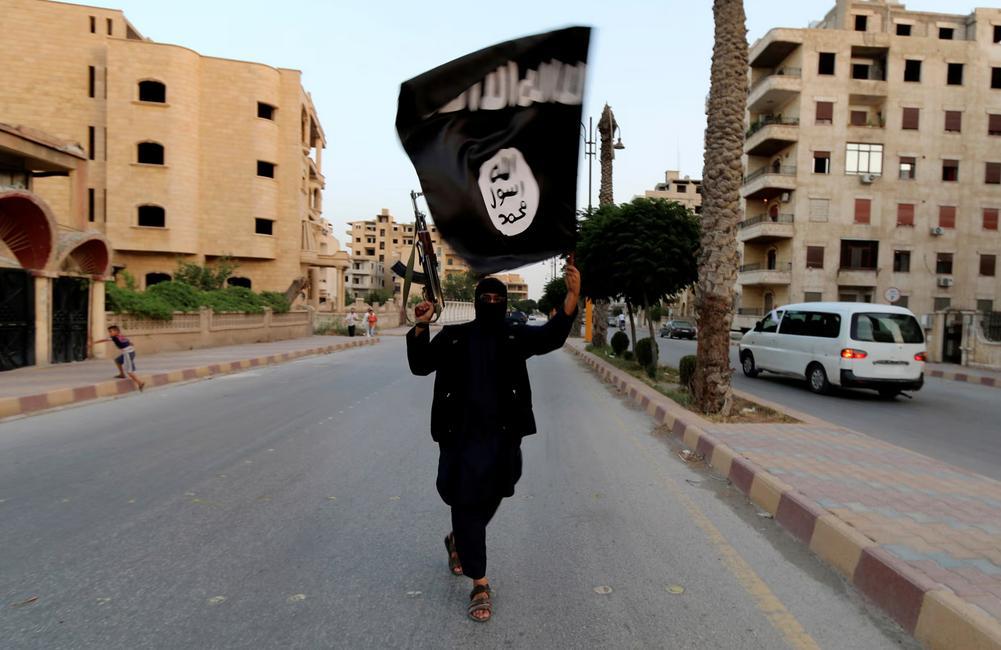
Islamic State is primed to be thorn in the side of incoming Trump administration
Amid a presidential campaign with foreign policy discussions more focused on the wars in Ukraine, Gaza and Lebanon, the Islamic State stayed under the radar while calling on supporters and operatives to attack Americans on election day.
The FBI thwarted a serious plot in Oklahoma City only weeks before the vote, prompting a similar public reaction to news involving the terror group that has become customary of late: is the Islamic State a renewed threat?
But the reality is that the terror group has always been one to watch.
For the last few years, since the fall of its so-called caliphate, IS was forced to reimagine itself and rallied by restructuring its cells in Europe and reinforcing strongholds in Afghanistan under the banner of the very busy Khorasan (ISKP) branch, and another in Somalia among others.
Now IS is primed to be a major thorn in the side of the incoming Trump administration and wants to be active this holiday season, as it has in years past.
In the depths of its chatrooms on Rocket.Chat, its chosen encrypted communications platform, IS talk of operations in the west has spiked as Christmas and Thanksgiving approach.
“For the brothers interested in stealing a car and using it in the next attacks,” wrote one IS operative in November, with a YouTube link explaining remote carjacking techniques.
Vehicle-ramming has been a hallmark of IS operations, including the 2017 attack on London Bridge and another on a Berlin Christmas market (which involved a stolen truck) in 2016. The terror group recently posted other manuals, one which urged the use of civilian drones as weapons.
A flurry of graphic propaganda images in October and November also beckoned followers to act. One image had the slogan “target them in their temples” with a knife and a Catholic church in the background, while another featured a Christmas tree and the barrel of what appears to be a Kalashnikov rifle and a hand grenade as an ornament.
Lucas Webber, a senior threat intelligence analyst at Tech Against Terrorism, said there was a “heightened [IS] threat to the west during the holiday season”.
“ISKP has begun setting the information space by releasing threatening propaganda images depicting one of its fighters holding a gun beside a Christmas tree, another urging supporters to follow European terrorists who had conducted recent attacks in Europe,” he said.
Though the amateurish IS imagery might suggest unseriousness, there is more than ample reasoning to take the threats very seriously.
ISKP carried out a lethal attack on a Moscow theater in March that brutally killed 145 people. Afterwards, the terror group vowed to bring the same level of carnage to an American target. It then released a poster featuring the US Capitol building and the message: “You are next.”
Webber said recent plots involving Somali IS planners show the group has multiple, international vectors of attack.
“The Islamic State’s Somalia branch has been linked to plotters in Sweden, for instance, where the branch’s leader lived for a time,” he said. “IS-Somalia was likewise linked to a bomb plot in Italy.”
But the US and its political significance is never far from the brains of IS planners.
President-elect Donald Trump, who in a televised event announced the killing of the IS leader Abu Bakr al-Baghdadi in 2019, is a common topic of online discussion among its followers and operatives.
One IS supporter on RocketChat brought up the assassination attempts on Trump this past summer, which he called “lazy”, hypothesizing about the potential for future opportunities.
“I believe if somebody is dedicated and smart enough he could do it,” the user went on. “Intelligence and security are human, they can make a lot of mistakes … It was that easy.”
“Hopefully one of them is successful,” said another user.
IS was a constant talking point for Trump during his first campaign, accusing then president Barack Obama and his administration as being the “founder” of IS who then failed to stop it. Once Trump did take power it was, in the end, his Pentagon that led an “anti-IS” coalition that ultimately eliminated the group’s land holdings in Iraq and Syria. He also sanctioned the 2017 dropping of the “mother of all bombs” on IS fighters in Afghanistan.
Now, years later, IS is once again on the march as Trump takes office for the second time.
Colin Clarke, director of research at the Soufan Center, believes of all the terrorist organization’s chapters, ISKP will be foremost in the minds of American intelligence officials.
“[Right] out of the gate, the threat posed by ISKP should be at the very top of the Trump administration’s priorities in terms of counter-terrorism,” he said. “ISKP remains determined to strike the west, and would love nothing more than to launch a high-profile attack in the United States.”
Clarke continued: “From day one in office, Trump’s counter-terrorism advisers must focus on the threat posed by ISKP external operations. This means looking at ISKP wherever the group operates, from south and central Asia to Turkey to Europe, working closely with other allied intelligence services to share information.”
Clarke did say that some of Trump’s national security appointments could potentially antagonize intelligence workers in the US government who are at the forefront of tracking IS, which would be a “poor way to begin his second term”.
“The intelligence community, including the CIA but also others, are the first line of defense in protecting the US homeland from groups like al-Qaida, Isis and their various affiliates and branches worldwide,” he said.
Source: theguardian





